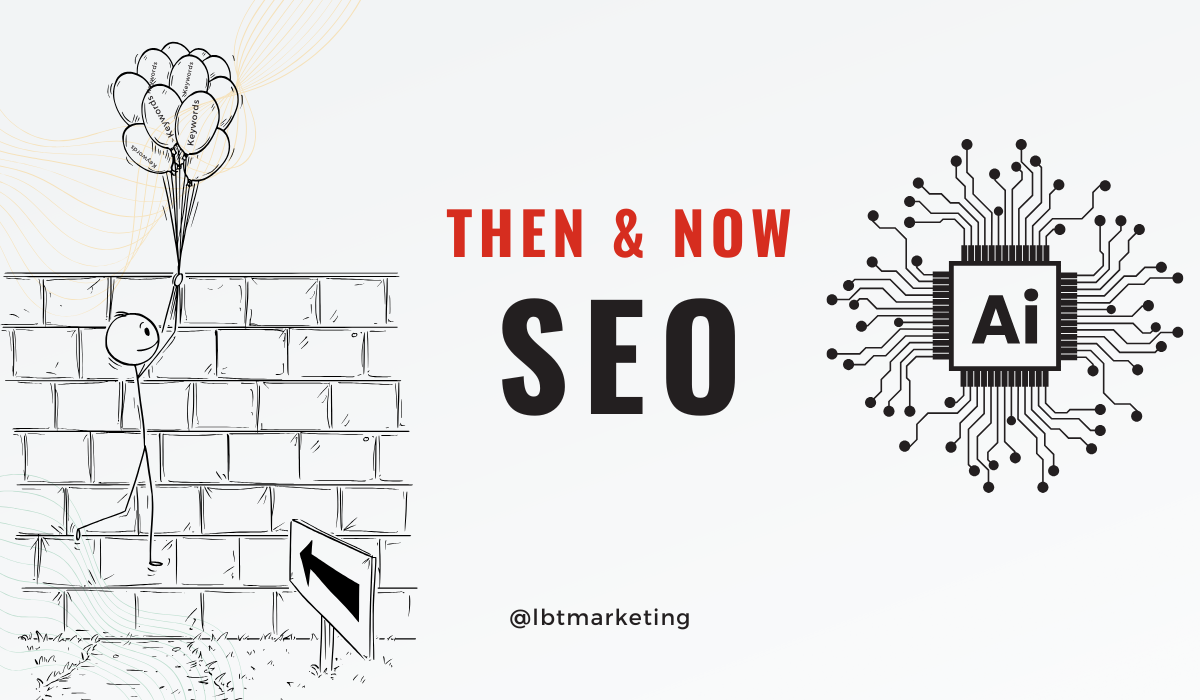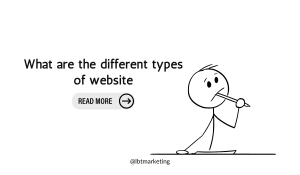Search engine optimization then and now, commonly known as “SEO,” was first recorded in 1997. Some sources suggest that SEO, as a concept, originated around 1991. Additionally, there was an attempt to trademark the term SEO. Jason Gambert claimed to be the first to use the term in a 2007 email. This predates the creation of Google and many other search engines we rely on today. However, as Jim George aptly put it, “It’s not how you start that’s important, but how you finish!” Indeed, Google is currently the dominant force in the SEO landscape
SEO then – How it started
When SEO first began, anything was accepted as a valid strategy. The trends and rules appeared as quickly as they disappeared. Everyone tried to master SEO using questionable practices like keyword stuffing and spammy links. In 1993, information began to be categorized, and by 1994, search engines like AltaVista and Yahoo joined the scene. In 1996, Sergey Brin and Larry Page laid the foundation for what would become the most recognized search engine: BackRub. Yes, it was BackRub that eventually evolved and was registered as the “Google” domain in 1997.
By 2003, the term “search engine optimization” appeared on Wikipedia, creating its place in internet culture. This milestone sparked the growth of a new industry, where consultants and analysts began helping companies climb to the top of search engine results.
” Marketing is really just about sharing your passion. ”
– Micheal Hyatt
Back in 90’s and 200
It’s interesting to note that what we now call SEO was once referred to by various terms like search engine positioning, search engine ranking, search engine registration, and website promotion. Around 2001, a prominent industry writer proposed “search engine marketing” as a successor to search engine optimization. However, for those who apply logic to understand these terms, it’s worth clarifying that SEO doesn’t technically mean optimizing search engines; it means optimizing the online presence of our websites. Despite this, the term SEO has remained the preferred terminology in the online industry for over 20 years and will likely continue to be so for the foreseeable future.
In the early days, the search engine landscape was highly competitive, with both human-powered directories and crawler-based listings like AltaVista, Yahoo, Infoseek, Ask Jeeves, and Excite vying for dominance. While the ideal approach to ranking was to be authentic, create value, and ensure that content was good and relevant, many marketers found a shortcut: keyword stuffing. The tactic involved repeating keywords excessively throughout webpages and meta tags—some pages even used a keyword 100 times.
The Evolution of SEO and the Growing Influence of Google
Today, SEO is often referred to as “I want to rank on Google’s top page.” Google accounts for nearly 93% of search engine use, and this dominance shows no signs of slowing down. Google stands out in the search engine race because it has always been a trendsetter. It managed to surpass competitors like AltaVista, Yahoo, Dogpile, Ask Jeeves, Infoseek, and others by consistently delivering accurate and relevant results to users’ queries.
Google’s success is largely due to its continuous investment in machine learning and data augmentation, which have helped refine its search algorithms. As of 2024, Google evaluates countless factors when determining SEO rankings, and these factors have steadily increased over time, making it the leader in search engine innovation.
Understanding – What is SEO ?
In the ever-evolving landscape of SEO, the core principles remain steadfast, anchoring the field with a consistent and straightforward approach. The SEO process is structured around six essential phases:
Research: This initial phase involves thorough business research, competitor analysis, evaluation of the current state of your website, and in-depth keyword research. Understanding these elements provides the groundwork for effective SEO strategies.
Planning and Strategy: Based on research findings, decisions are made regarding content management, link building, social media engagement, and technical SEO strategies. This phase outlines a comprehensive plan to enhance the website’s visibility and performance.
Implementation: Here, the strategies are put into action. This involves optimizing individual webpages and the website as a whole, ensuring that all elements align with the established SEO plan.
Monitoring: Continuous observation is critical. This phase focuses on tracking web spider behavior, traffic patterns, search engine rankings, and other relevant metrics. The data collected is used to generate reports that help assess the effectiveness of the implemented strategies.
Assessment: In this phase, the impact of the SEO strategies and their execution is evaluated against the set goals. This step is crucial for determining whether the targets have been met and identifying areas for improvement.
Maintenance: SEO is an ongoing process. Regular maintenance addresses both minor and major issues that arise, such as optimizing new content and updating strategies based on evolving trends and performance metrics.
These phases, while rooted in fundamental principles, adapt to the dynamic nature of SEO, ensuring that strategies remain effective and relevant in a continuously changing digital environment.
SEO Now in 2024
Adapting to the ever-changing digital landscape is crucial for success, and Google exemplifies this adaptability. As marketers, staying ahead of these evolving trends is essential. In 2024, several key trends are shaping the SEO landscape:
Rise in Question-Based Keywords and Answers: There is a growing emphasis on incorporating question-based keywords into content. Creating blog posts and content specifically designed to answer common questions can improve visibility and relevance in search results.
Dedicated FAQ Pages: Developing a dedicated page for frequently asked questions (FAQs) is becoming increasingly important. This approach not only helps in addressing user queries more effectively but also improves your site’s structure and relevance.
Case Studies: Sharing detailed case studies provides valuable insights and demonstrates practical applications of your expertise. This not only enhances your content’s credibility but also engages your audience with real-world examples.
E-A-T Model: Google’s E-A-T (Expertise, Authority, Trustworthiness) model remains central to SEO success. Emphasizing your website’s role as an authority in your field—demonstrating expertise, providing reliable information, and establishing trust—is essential for improving search rankings and gaining audience trust.
By aligning with these trends, you can enhance your SEO strategy, ensuring that your content is both relevant and authoritative in an increasingly competitive digital landscape.





